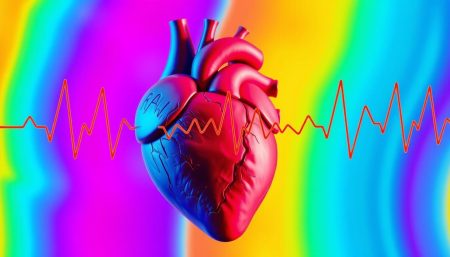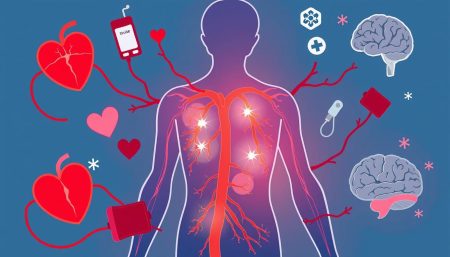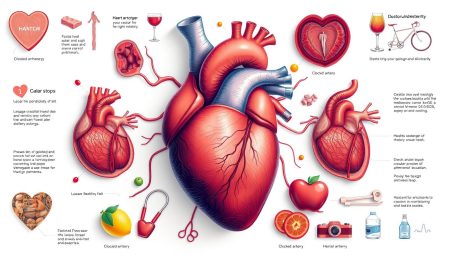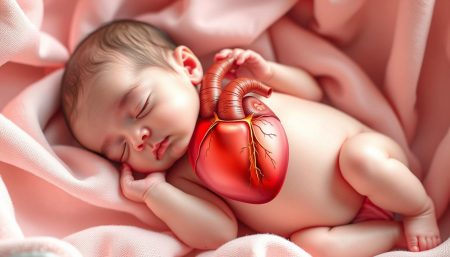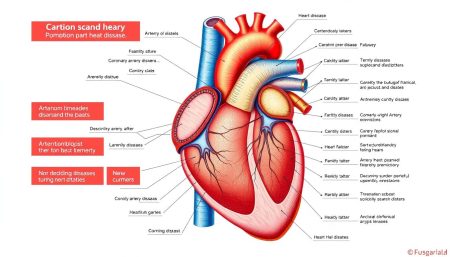Heart health is key to feeling good. Many ask, “Do I have cardiovascular disease?” It’s a good question, as heart disease is a top killer globally. Spotting heart disease symptoms early can save lives.
Knowing about cardiovascular health is important for everyone. This guide will show you how to spot warning signs and when to see a doctor. By staying informed, you can protect your heart and keep your cardiovascular health in top shape.
Let’s look at the signs that might mean you have heart disease. We’ll also learn how to tell if you’re just feeling off or if it’s something serious. Remember, catching heart problems early and acting fast is key to managing them well.
Understanding Cardiovascular Disease: A Comprehensive Overview
Cardiovascular disease includes many heart and blood vessel conditions. It affects millions globally, making heart health key to well-being. We’ll look at different heart issues, their worldwide effects, and clear up heart disease myths.
Types of Cardiovascular Conditions
Heart disease comes in many forms, each with its own risks. Some common ones are:
- Coronary artery disease
- Heart valve disorders
- Arrhythmias
- Heart failure
Impact on Global Health
Cardiovascular disease is a top cause of death worldwide. The numbers are huge:
| Region | Annual Deaths | Economic Impact |
|---|---|---|
| North America | 655,000 | $219 billion |
| Europe | 3.9 million | €210 billion |
| Asia | 9.4 million | $1.1 trillion |
Common Misconceptions About Heart Disease
Many myths exist about heart health, making prevention hard. Let’s clear up some:
“Heart disease only affects older adults.”
This is not true. Young people can get heart conditions, too, due to lifestyle choices. Regular health checks and good habits are important for everyone.
Understanding heart disease helps us take better care of our hearts and lives.
Do I Have Cardiovascular Disease: Essential Warning Signs
It’s vital to know the signs of heart problems early. If you’re wondering, “do i have cardiovascular disease,” look out for key symptoms. These signs might show you have a heart issue.
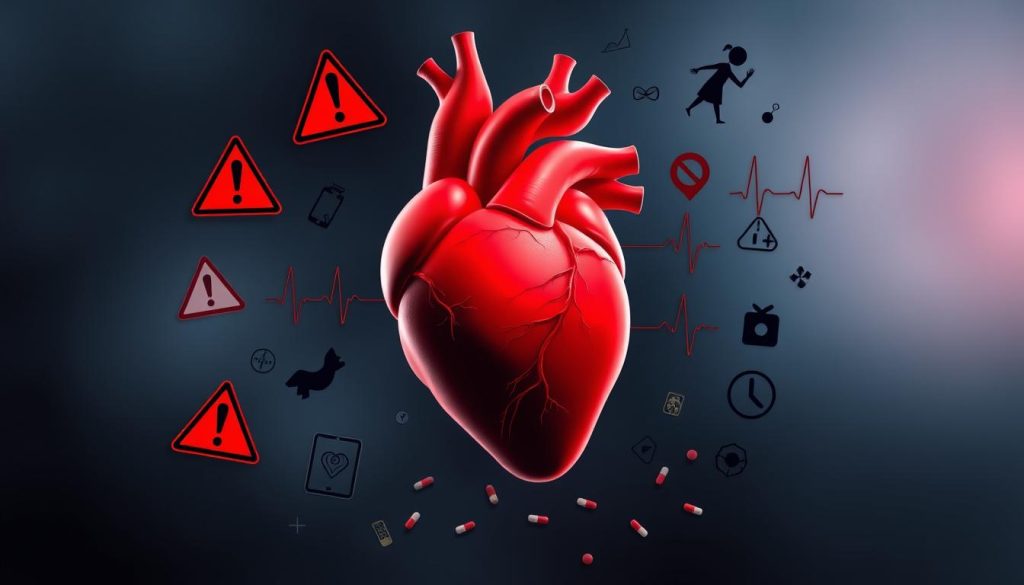
Chest pain or discomfort is a common sign of heart problems. This feeling can be mild or very tight. It might happen when you’re active or when you’re resting.
Shortness of breath, even with little effort, is another warning sign. This could mean your heart is not working right.
Irregular heartbeat or palpitations are also signs. You might feel your heart racing or skipping beats. Feeling unusually tired or weak, suddenly and severely, could also point to heart issues.
Other signs of heart attack risk include:
- Unexplained dizziness or lightheadedness
- Nausea or vomiting, often with other symptoms
- Cold sweats not caused by activity or cold
- Swelling in the legs, ankles, or feet
Heart disease symptoms can differ between men and women. Women might feel jaw pain, upper back pain, or flu-like symptoms instead of chest pain.
“Listen to your body. If something feels off, don’t hesitate to seek medical attention. Early intervention can be life-saving when it comes to heart health.”
If you notice many symptoms or worry about your heart, see a doctor fast. They can check if you have heart disease. They’ll also help you find the right treatment.
Early Detection Signs That Shouldn’t Be Ignored
Spotting heart disease symptoms early can save lives. Knowing the signs helps you get medical help fast. Let’s look at important warning signs and when to go to urgent care.
Physical Symptoms to Watch For
Heart disease often shows up with small physical changes. Common signs include:
- Chest discomfort or pain
- Shortness of breath
- Irregular heartbeat
- Swelling in legs, ankles, or feet
- Fatigue or weakness
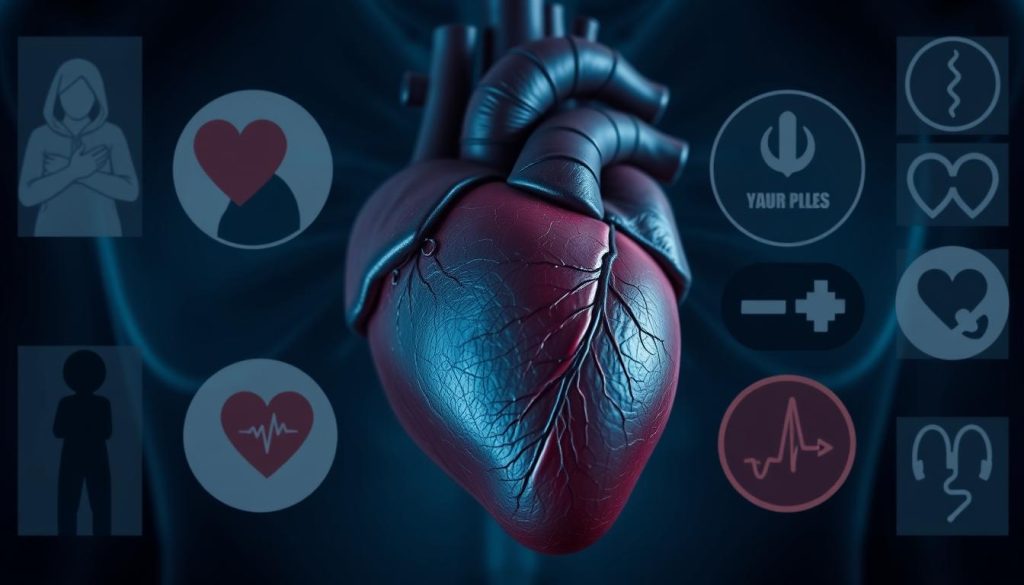
Emotional and Mental Warning Signs
Heart issues can also mess with your mind. Watch out for:
- Unexplained anxiety
- Sleep disturbances
- Difficulty concentrating
- Mood swings
When to Seek Emergency Care
Some symptoms need urgent medical help. Call 911 if you have:
- Severe chest pain lasting more than a few minutes
- Difficulty breathing with lightheadedness
- Sudden weakness or numbness in arms or legs
- Fainting or near-fainting episodes
Early screening for heart disease can catch problems early. If you see any lasting signs, see your doctor right away. Regular check-ups and healthy living can lower your heart disease risk.
Major Risk Factors for Heart Disease
Knowing about heart attack risk factors is key to keeping your heart healthy. By understanding these factors, you can prevent heart disease. Let’s look at the main things that affect your heart’s health.
Age and family history are big factors in heart disease. As we get older, our hearts change, making them more vulnerable. If your family has heart problems, you might be at higher risk.
What you do every day also matters a lot. Smoking harms your blood vessels and lowers oxygen levels. Eating too much saturated fat and not enough fruits and veggies can clog your arteries. Not being active weakens your heart.
Medical conditions can also harm your heart. High blood pressure makes your heart work too hard. Diabetes messes with blood sugar and can damage blood vessels. Being overweight puts extra stress on your heart and is often linked to other risks.
| Risk Factor | Impact on Heart Health | Prevention Strategy |
|---|---|---|
| Smoking | Damages blood vessels | Quit smoking programs |
| High Blood Pressure | Strains heart muscle | Regular blood pressure checks |
| Physical Inactivity | Weakens heart | 30 minutes of daily exercise |
| Unhealthy Diet | Leads to plaque buildup | Eat more fruits and vegetables |
By tackling these risk factors, you can greatly improve your heart health. Regular doctor visits can help keep an eye on your heart. They can also guide you in making healthy lifestyle changes.
Diagnostic Tests and Screening Methods
Cardiovascular screening is key in finding heart problems early. Doctors use different tools to check the heart’s health. This helps in preventing and diagnosing heart diseases.
Non-Invasive Testing Options
Doctors often start with non-invasive tests. These include electrocardiograms (ECGs) to check heart rhythm. Stress tests see how the heart works when you’re active.
Echocardiograms use sound waves to show the heart’s structure. These tests are the first step in checking the heart.
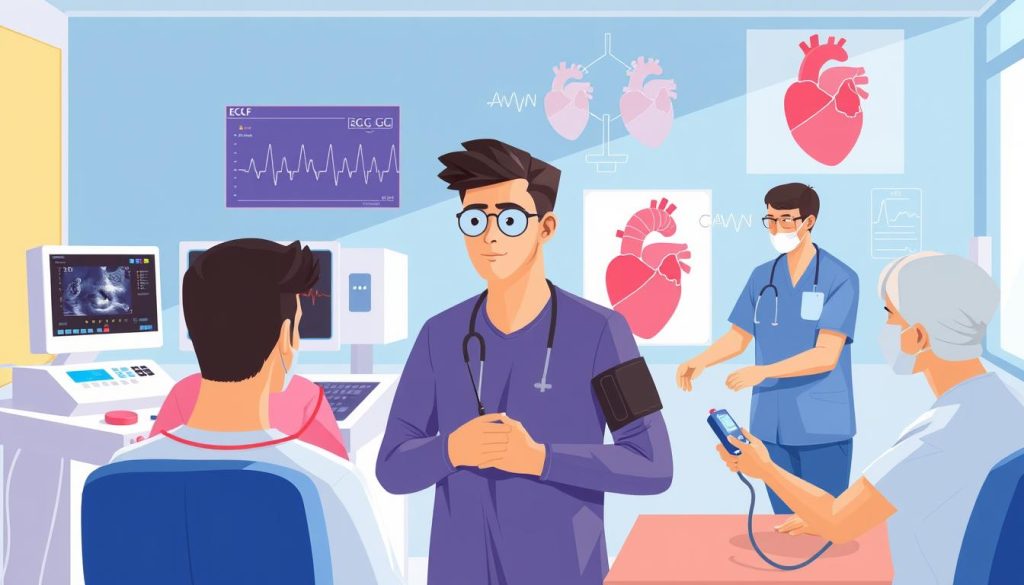
Advanced Cardiac Imaging
For a closer look, advanced imaging is used. Cardiac CT scans give detailed 3D images of the heart. MRI scans show the heart’s muscle and tissue in detail.
These tools help doctors find problems that simple tests might miss.
Laboratory Tests and Biomarkers
Blood tests are important for heart health. They check biomarkers that show how the heart is doing. Here’s a look at some key tests:
| Test | Purpose | Normal Range |
|---|---|---|
| Cholesterol Panel | Measures LDL, HDL, and total cholesterol | Total: Below 200 mg/dL |
| C-Reactive Protein | Indicates inflammation in blood vessels | Less than 3.0 mg/L |
| Troponin | Detects heart muscle damage | Below 0.04 ng/mL |
Regular screenings help find heart problems early. Always talk to a doctor about the right tests for you.
Lifestyle Changes for Heart Disease Prevention
Living a heart-healthy lifestyle is key to preventing heart disease. Making smart choices in diet, exercise, and stress management can lower your risk of heart problems. Let’s look at simple ways to keep your heart healthy.
Heart-Healthy Diet Guidelines
Eating right is the base of a heart-healthy lifestyle. Choose whole foods, lean proteins, and lots of fruits and veggies. Cut down on saturated fats, sodium, and sugars. The Mediterranean diet is great for your heart.
| Food Group | Recommended Choices | Foods to Limit |
|---|---|---|
| Proteins | Fish, lean poultry, legumes | Red meat, processed meats |
| Fats | Olive oil, avocados, nuts | Butter, trans fats |
| Carbohydrates | Whole grains, fruits, vegetables | Refined grains, sugary snacks |
Exercise Recommendations
Regular exercise is essential for heart health. Aim for 150 minutes of moderate exercise or 75 minutes of vigorous exercise weekly. Try brisk walking, swimming, or cycling.

Stress Management Techniques
Stress can harm your heart. Use stress-reduction methods daily. Try meditation, deep breathing, or yoga. Also, get enough sleep and balance work and life for better heart health.
“Taking care of your heart through lifestyle changes is one of the best investments you can make in your long-term health and well-being.”
By adopting these heart-healthy habits, you’re taking big steps towards preventing heart disease. Remember, small, consistent actions can make a big difference in your heart health over time.
Treatment Options and Management Strategies
Managing heart disease requires a mix of medical care and lifestyle changes. Doctors create treatment plans based on each patient’s heart condition and health.

- Beta-blockers to lower blood pressure
- Statins to reduce cholesterol levels
- Anticoagulants to prevent blood clots
- ACE inhibitors to improve heart function
Sometimes, surgery is needed for severe heart conditions. Procedures include:
| Procedure | Purpose |
|---|---|
| Angioplasty | Opens blocked arteries |
| Bypass surgery | Creates new path for blood flow |
| Valve repair/replacement | Fixes faulty heart valves |
Changing your lifestyle is vital for heart health. This means eating well, exercising, managing stress, and quitting smoking. Cardiac rehab programs offer support for these changes.
“The key to successful heart disease management is a partnership between the patient and their healthcare team, focusing on both medical treatments and lifestyle modifications.”
Regular check-ups are important to see how treatments are working. This helps make any needed changes. This approach helps patients manage their heart condition and live better lives.
Living with Cardiovascular Disease: Daily Management Tips
Managing heart disease means changing your daily life. A heart-healthy lifestyle and focusing on cardiovascular health are key. These steps help you deal with heart conditions.
Medication Management
It’s important to take your heart medicines as directed. Keep a schedule of your medicines, including how much and when. Use pill boxes or apps to stay on track. Always talk to your doctor before changing your medicine routine.
Activity Modifications
Changing how you exercise is vital for heart health. Start with easy activities like walking or swimming. As you get stronger, you can do more. But always listen to your body and stop if you feel pain or can’t breathe well.
Mental Health Support
Heart disease can also affect your mind. Reach out to family, friends, or counselors for help. Joining support groups can connect you with others who understand. Try stress-reducing activities like meditation or deep breathing to feel better.
“Embracing a heart-healthy lifestyle isn’t just about physical changes. It’s about nurturing your emotional well-being too.”
By managing your medicines, exercising safely, and taking care of your mental health, you can control your heart disease. Remember, small steps every day can make a big difference in your life.
Prevention Strategies for High-Risk Individuals
For those at high risk of heart disease, prevention is key. A heart-healthy lifestyle can greatly lower the risk of heart attacks. Let’s look at strategies for those at high risk to keep their hearts safe.
Eating a heart-healthy diet is essential. Choose foods high in omega-3s, fiber, and lean proteins. Avoid saturated fats, trans fats, and too much sodium. Regular exercise, suited to your ability, boosts heart health and blood flow.
Managing stress is also critical. Meditation, deep breathing, or yoga can help lower blood pressure and stress hormones. These can harm the heart.
| Risk Factor | Prevention Strategy |
|---|---|
| High Blood Pressure | Monitor regularly, reduce sodium intake, exercise |
| High Cholesterol | Eat heart-healthy fats, increase fiber intake |
| Smoking | Quit smoking, seek professional help if needed |
| Obesity | Maintain a healthy weight, portion control |
| Diabetes | Control blood sugar, follow prescribed treatment |
Regular health checks are vital for catching heart problems early. Work with your doctor to create a prevention plan that fits you. Even small changes can significantly improve heart health.
When to Consult a Cardiovascular Specialist
It’s important to know when to get expert advice for your heart health. If you have ongoing chest pain, trouble breathing, or irregular heartbeats, it’s time to get checked. These signs of heart trouble should not be ignored, as catching them early can make a big difference.
Some risk factors mean you should see a specialist sooner. If heart disease runs in your family, you have high blood pressure, or diabetes, it’s a good idea to get checked. A specialist can look at your risk and create a plan to prevent problems.
Don’t wait for a big problem to get help. If you’re always tired, your legs swell, or you can’t exercise like you used to, it could be a sign of heart issues. A specialist can run tests to find any problems and suggest treatments.
Remember, your regular doctor can help decide when to see a cardiologist. They might send you for tests or because of ongoing symptoms. If you’re worried about your heart, getting an expert’s opinion is always a good idea.
FAQ
Q: What are the most common symptoms of cardiovascular disease?
A: Common symptoms include chest pain or discomfort, shortness of breath, and irregular heartbeat. Fatigue and swelling in the legs are also signs. But, some people may not notice these symptoms. If you’re worried about your heart, talk to a doctor.
Q: How can I reduce my risk of developing heart disease?
A: To lower your risk, eat a balanced diet and stay active. Manage stress and avoid tobacco and alcohol. Keep your weight healthy. Also, control blood pressure, cholesterol, and diabetes.
Q: When should I seek emergency care for possible heart problems?
A: Get help right away for severe chest pain, trouble breathing, or fainting. Pain in the arm, jaw, or back could mean a heart attack. Quick action is vital.
Q: What are the main risk factors for cardiovascular disease?
A: High blood pressure, high cholesterol, and smoking are big risks. Obesity, diabetes, and age also increase risk. Family history and stress matter too. Some risks you can change, but not all.
Q: How often should I get screened for heart disease?
A: Screening frequency varies based on your health and age. Adults should check blood pressure yearly and cholesterol every 4-6 years. Your doctor may suggest more tests if you have risk factors.
Q: Can stress really affect my heart health?
A: Yes, stress can harm your heart. It can raise blood pressure and heart rate. Stress management, like meditation or exercise, is important for heart health.
Q: Are heart attack symptoms different for women?
A: Women may have different symptoms than men. They might feel nausea, vomiting, or back pain instead of chest pain. It’s important for women to know these signs and seek help if needed.
Q: How does diet affect cardiovascular health?
A: A good diet is key for heart health. Eat lots of fruits, veggies, and whole grains. Choose lean proteins and healthy fats. Avoid bad fats, sodium, and sugars. The Mediterranean and DASH diets are good choices.
Q: Can cardiovascular disease be reversed?
A: Some heart damage can be improved. Lifestyle changes, medicine, and procedures can help. Early action and ongoing care are essential for the best results.
Q: What role does genetics play in heart disease?
A: Genetics can increase your risk. A family history of heart disease is a warning sign. But, lifestyle and environment also matter. Knowing your genetic risk helps in planning prevention and screenings.













